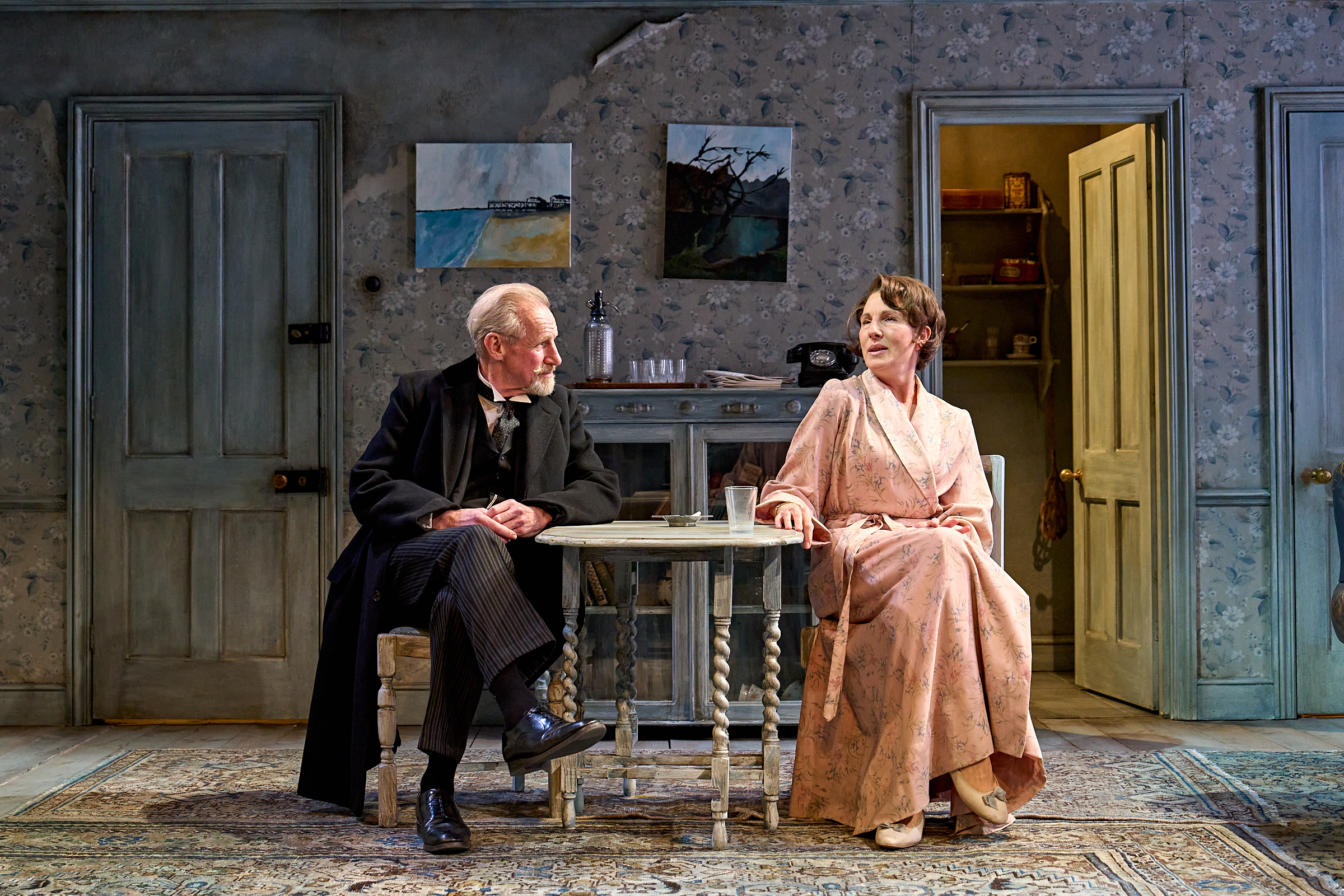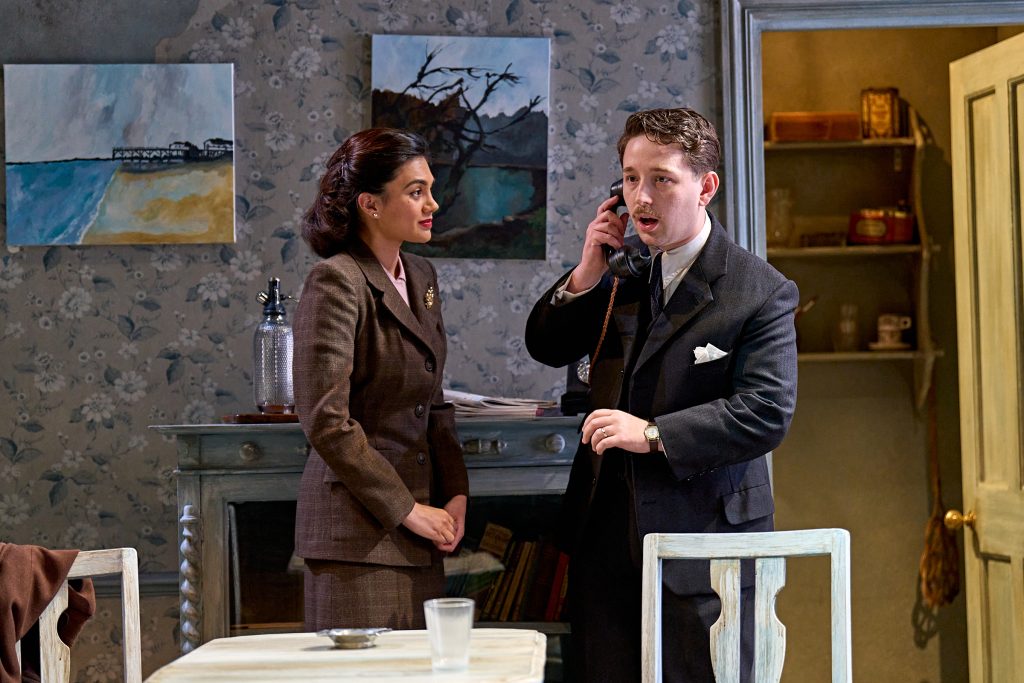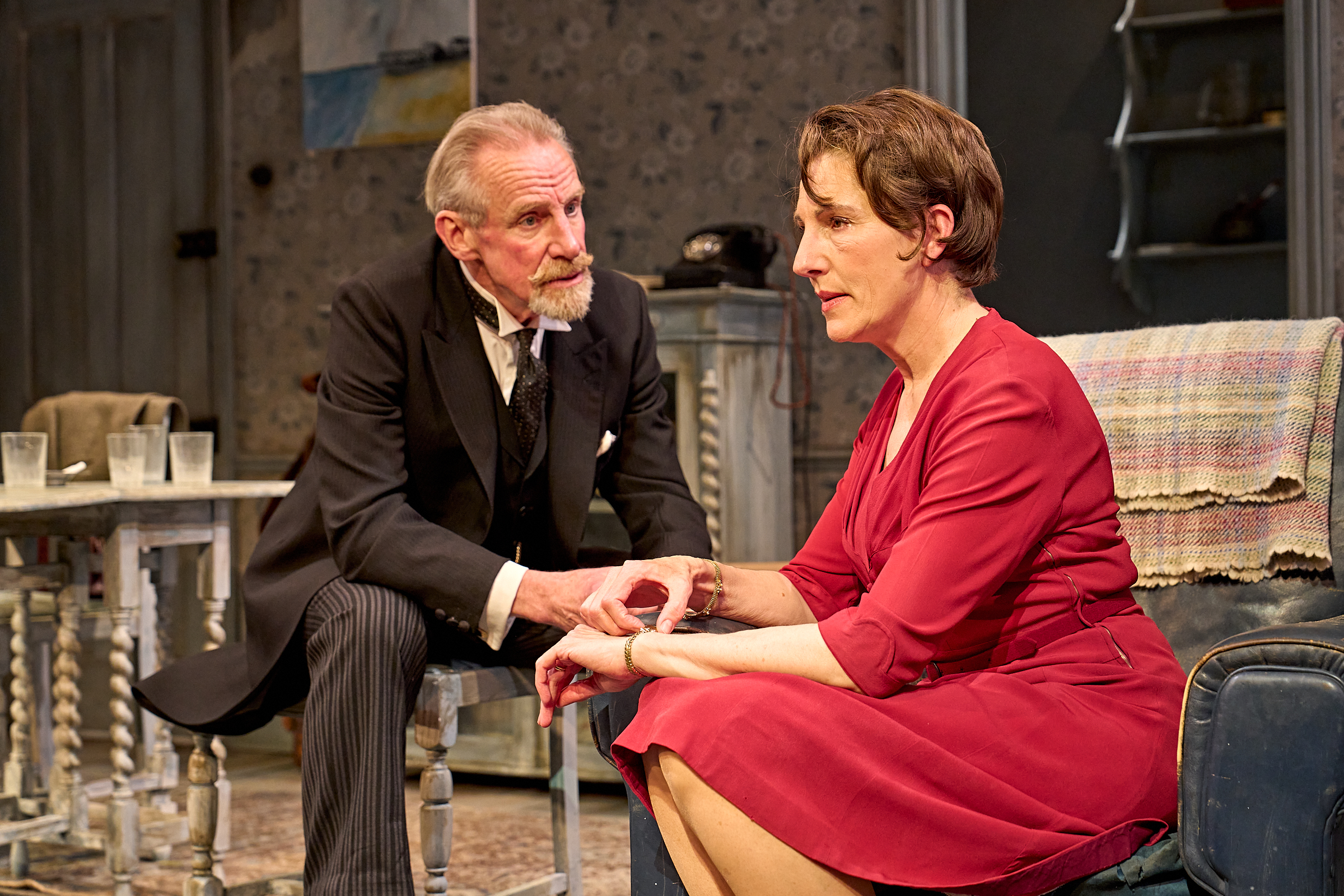Lindsay Posner’s revival of Terence Rattigan’s The Deep Blue Sea has journeyed from a small studio in Bath to the grand Theatre Royal Haymarket, proving once again that the quietest tragedies can command the biggest rooms. From the first moment, as you see the apparent corpse and anticipate its discoverers, a faint smell of gas seems to drift from the stage, telling you this will not be a night of easy escapism. Written in 1952 when Britain hid its grief behind perfect manners, the play remains a scalpel for the heart, and Posner wields it with steady hands.
Rattigan channelled his own forbidden heartbreak, after a former lover gassed himself, into Hester Collyer, a vicar’s daughter who has traded marital and financial security for the dangerous charm of Freddie Page, a former RAF flyer and test pilot now grounded by booze. Peter McKintosh’s set traps you in a shabby Ladbroke Grove bedsit: peeling wallpaper and a coin fed gas fire that is both villain and accomplice, while the torch song Stormy Weather sighs between scenes.
The action begins with a thud and a hiss: Hester lies on the carpet, life ebbing after an attempted gassing, thwarted because she forgot to feed the meter. Revived by the mysterious Mr Miller, another resident in the boarding house, she apologises with brittle courtesy that makes the audience wince. The play unfolds over the next day in which Hester must confront the impossible space between desire and reality.
Tamsin Greig delivers a masterclass in controlled emotional devastation as Hester. Her performance exists in the pauses, the silences, the moments between words where entire universes of feeling collapse and rebuild. When alone, her Hester moves with the heavy deliberation of someone constantly fighting gravity; when observed, she snaps into a performance of normality that’s more heartbreaking for its fragility. Greig brings a sardonic edge to Hester’s despair – a flicker of self-awareness that prevents the character from descending into mere victimhood. Equally, Hester’s desperate bargaining with her lover to come back, just to say goodbye, is embarrassing, excruciating.

As Freddie Page, Hadley Fraser brilliantly navigates the challenge of playing a character simultaneously magnetic and maddening. His ex-pilot carries the artificial brightness of someone still performing heroism long after the war has ended. Fraser finds the terror beneath Freddie’s bravado – a man so damaged by his wartime experiences that he cannot bear the weight of Hester’s emotional needs, yet cannot quite let her go either. Their scenes together crackle with the dangerous electricity of two people who understand they are destroying each other but cannot find the language to stop.
Nicholas Farrell brings unexpected warmth and complexity to Sir William, Hester’s estranged husband. Rather than playing him as a cold representative of respectability, Farrell reveals a man struggling to understand passion as if it were a foreign language he studied once but never mastered. His dignified pain and his desire to give Hester stability creates a powerful alternative to Freddie’s volatility, making Hester’s dilemma genuinely impossible rather than simply melodramatic.
Finbar Lynch delivers the production’s most unexpectedly affecting performance as Mr. Miller, Hester’s enigmatic neighbour. An ex-doctor with secrets of his own, Miller becomes the play’s moral compass and emotional anchor. Lynch infuses the character with a wounded wisdom that suggests volumes about his own past suffering without ever making it explicit.
Selina Caddell plays the all-knowing housekeeper/landlady Mrs Elton with an echo of Julie Walter’s Mrs Overall, bringing the odd flash of comedy that makes the audience laugh guiltily for being distracted from the tragedy playing out.
Posner directs with monastic restraint, trusting face and silence over flourish. Save for the slow dissipation of Hester’s artwork from the walls, the furniture stays put, so the slightest movement acquires seismic weight: when Hester crosses the room to kneel by the gas fire you sense a congregation holding breath. Silences accumulate until you hear someone breathing two rows away and realise it might be you. In those gulfs of stillness the play invites you to project your own secret regrets on the peeling wallpaper. A restless spectator may wish for a musical cue, yet the hush is the drama’s nervous system. When a door slams or the gas hisses it lands like artillery.
Seventy years on, the play’s questions are no less relevant. How far will you chase passion? What happens when sadness meets a society that prizes reservation? Rattigan could not write openly about his own forbidden love, so he made a woman live the consequences, and that substitution still lands hard in an era grappling with mental health and hidden identity.
As you watch Hester navigate her impossible position, caught between the devil and the deep blue sea of the title, what emerges is not simply a period piece about post-war British moral codes, but a timeless examination of human longing. You may think of Blanche DuBois or Hedda Gabler or even a reality show contestant who finds ordinary life achingly flat after bright lights. When Hester ends up alone by the dead fire the house leans forward, collective breath suspended. The applause begins tentatively, then grows fierce, confirming that no projection screen or rotating stage can outdo a human heart laid bare. Eight actors take a modest bow at the end reminding us that the most powerful special effect is truth spoken softly and heard in silence.



